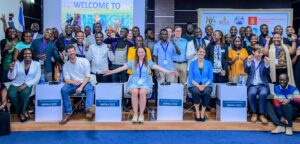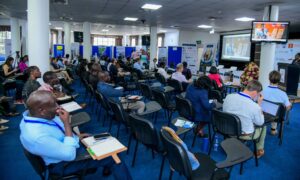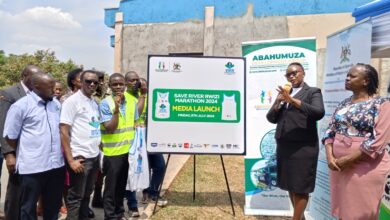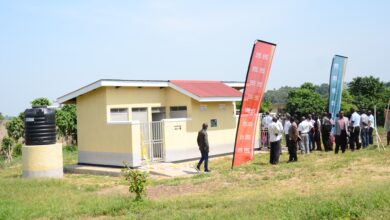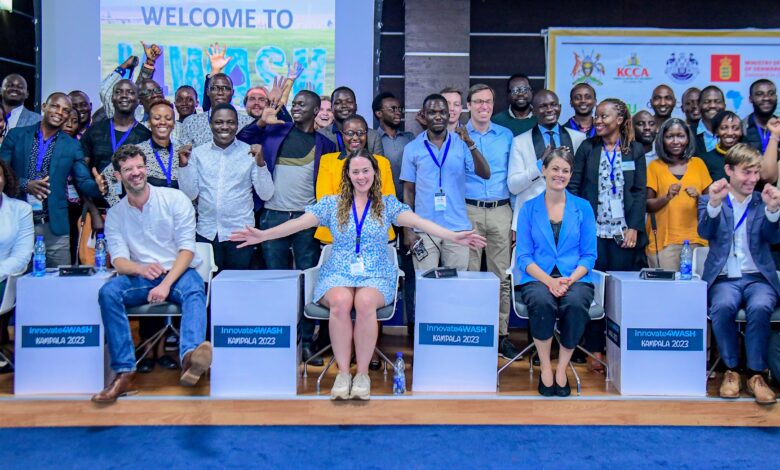
Kampala, Uganda: – The Innovate for WASH Kampala Conference, organized by the Water and Sanitation Enterprises Uganda (WASEU) and the Quercus Group, on 25-27th October 2023 brought together a diverse group of experts, entrepreneurs, and organizations to discuss and showcase innovative solutions in the Water, Sanitation, and Hygiene (WASH) sector. The conference, held over two days at the International Resource Center in Wankoko-National water and Sewerage Corporation offices, featured sessions and presentations from industry leaders, highlighting the tremendous progress and potential within the water and sanitation sector in Uganda.
Day One: A Confluence of Visionaries
The first day of the conference kicked off with an inspiring speech from the Danish Ambassador to Uganda H.E Signe Winding Alberg, setting the tone for an event focused on collaboration and innovation. The subsequent sessions delved into remarkable initiatives and models, providing insights into how innovative approaches are making a significant impact in urban and rural settings.
Mr Christopher Kanyango, a sanitation engineer at Water for People, shared their inclusive sanitation model, emphasizing the importance of understanding service gaps and market opportunities. Through practical idea testing, market assessments, and scaling efforts, Water for People has managed to produce faecal sludge briquettes and construct public sanitation facilities, benefiting thousands.
Mr. Robert Asiimwe, a representative from Action Aid International discussed access to clean water for domestic and productive use in the West Nile region of Uganda. Climate change, along with water contamination and poor quality, were identified as key challenges. Action Aid International’s achievements in the West Nile region include facilitating dialogues, supporting small farmers, and forming partnerships with various stakeholders to enhance access to clean water and proper sanitation. The sessions on day one concluded with thematic discussions and group representatives sharing key actionable insights.
Day Two: Empowering Emerging Businesses
The second day of the conference focused on emerging businesses in the WASH sector, offering them a platform to pitch their innovative ideas and share their accomplishments. These businesses are on the frontline of driving change and making a tangible difference in communities.
Mr. Richard Mutabazi, the representative for Kampala city council authority presented the role of the regulator in promoting climate resilience in urban sanitation systems. Other programme achievements stated in his presentation was the City wide inclusive sanitation programme.Ms. Irene Namusu from SIMAVI shared lesson from the implementation of the WASH SDG Programme, a 5 year Dutch funded project in Agago district, showcasing achievements and areas for future collaboration and strategic approaches. Project Maji, a non-profit enterprise, showcased its work in developing, deploying, and maintaining solar-powered water solutions in remote rural areas, improving access to safe water for thousands of people. The social enterprise charges nominal fees for water through digital payment systems and partners with local governments and institutional donors to make these initiatives sustainable. Technology for Tomorrow (T4T), founded in 2008, presented its mission to provide appropriate technology for households, promote menstrual hygiene, and improve waste management. T4T strives to break myths surrounding water provision and focus on creating value for communities. Waterworks Limited, a Ugandan water engineering company, highlighted its work in solar water pumping services. By harnessing solar power, they provide clean and cost-effective water solutions, benefiting thousands of refugees and students while reducing carbon emissions.
The thematic working groups was a co-creation session by different actors to brainstorm challenges and come up with actions that can be done to troubleshoot sector challenges.These discussions were conducted over two days, covering various challenges and opportunities in urban and rural water and sanitation. The participants outlined the problems, obstacles, and potential remedies related to access to clean water, sanitation infrastructure, and public awareness.
The discussions on urban water highlighted the challenges related to financing, climate-resilient infrastructure, low sewered sanitation coverage, polluted water sources, affordability, waste management, and more. To address these challenges, proposed solutions include government financing, de-risking investment, tax exemptions, privatization, and more. The rural water discussions covered issues such as financing, terrain conditions, affordability, sanitation infrastructure, access to clean water, and community sensitization. The solutions included innovative financing, sensitization campaigns, holistic water supply approaches, recycling, and guarantee funds for financial institutions.
The rural sanitation discussions pointed out challenges like difficult soil conditions, lack of access to clean water, poverty, limited financing, and cultural norms. To address these issues, the proposed solutions include behavior change campaigns, sensitization, gender-sensitive solutions, better coordination of waste management, and affordable sanitation infrastructure.
The conference also featured Business Connect, a global company in 80 countries that specializes in WASH activities, promoting products that improve water quality and access. The event concluded with all participants and organizations reaffirming their commitment to driving innovation in the WASH sector and creating lasting impact in communities.
